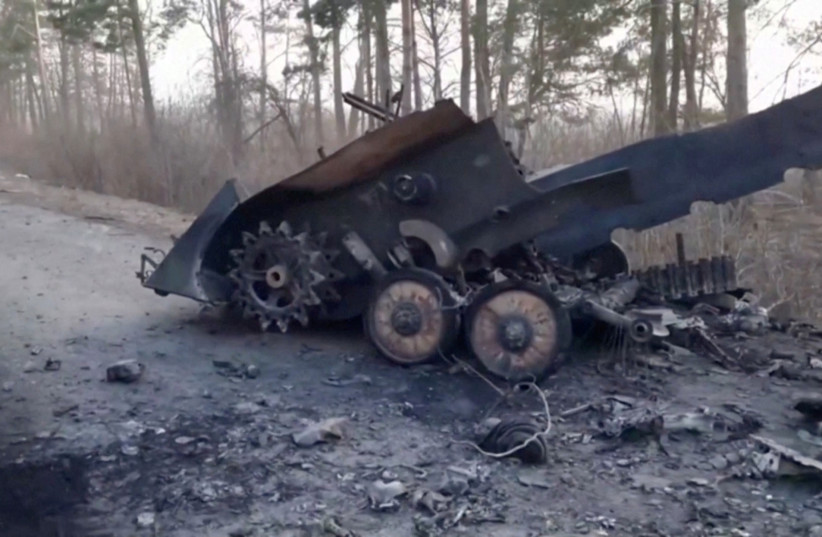Russia is planning to sell timber from trees felled in Ukraine during the invasion, the Main Intelligence Directorate of the Ministry of Defense of Ukraine claimed on Tuesday, citing an alleged Russian government permit addressed to President Vladimir Putin and signed by Russian Defense Minister Sergei Shoigu.
The document, which could not be verified as legitimate by The Jerusalem Post, supposedly considers permitting the Armed Forces of the Russian Federation to not only fell forests and greenery in order to create fortifications, defenses and other military purposes, but the right to sell the timber.
"The decision on the sale of wood would be made by authorized bodies," said the document published by the Ukrainian Intelligence Directorate. The permit stated that the proceeds would be used by the Russian Defense Ministry.
There was no indication in the document or in the Intelligence Directorate statement signaling that the permit had been approved and finalized by the Russian leadership.
"The occupying state plans mass deforestation of Ukrainian forests," said the directorate. "All forests in the temporarily occupied territories are at the highest risk. The total feeling of greenery is another terrible crime of the occupiers and the creation of an ecocide.
"The last time this happened on the territory of Ukraine was during the Nazi occupation," the directorate continued, "when the invaders destroyed and exported material and natural values."

On Monday, the Intelligence directorate also claimed that Russian forces have been deliberately targeting agricultural machinery in Ukraine. They alleged that 30 farming vehicles were destroyed in an airstrike in the Sumy region, and claimed that there were also incidents recorded in the Kyiv, Zaporizhia and Chernihiv regions.
The directorate argued that the targeting of food production would lead to a humanitarian crisis in some areas of Ukraine, and threaten the global food supply at large.
The Ukrainian intelligence body also claimed that "agricultural machinery is requisitioned en masse by the invaders for engineering work, construction of fortifications and for use as tractors for armored vehicles. The local population in the occupied settlements is forcibly involved in these works."
Videos have also surfaced of what is allegedly Ukrainian farmers towing away abandoned Russian military equipment as an act of opposition.
According to Articles 53 and 147 of the Geneva Conventions on the Protection of Civilian Persons in Time of War, it is prohibited to destroy civilian private and public property unless it has an absolutely necessary military purpose.
Pillage is against the norms of customary international law, and it is also held in practice that forests and other public estates should only be administered by the occupying power. According to the Hague Regulations article 55, the military authority has "usufructuary" powers, which means that they may benefit from the profits of the property, but may not damage or alter the property in any substantial way.
According to Article 51 of the Geneva convention, the occupying army may only compel locals to work if they are over 18 years old, the work is not part of military operations and is of general administrative need. Article 53 of the Hague regulations allow for the seizing of private vehicles for military use, but "must be restored and compensation fixed when peace is made."
